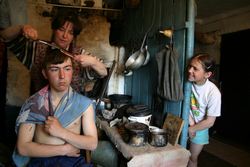The particularities of asset accumulation by poor households in developing countries
The project's main aim was to study asset accumulation by poor households in developing countries, with a focus on human capital. Importance was placed on understanding the mechanisms behind this investment process, the limiting and constraining factors, and the specific policy contexts of implementation. Investment is an inherently dynamic phenomenon that includes the consideration of future returns. Often, researchers have made arbitrary assumptions about the formation of expectations, as a result of a lack of data on subjective expectations, which determine individual decisions. Resources were therefore invested in the study of reliable measurement tools for subjective expectations and their use. IHKDC (Exiting long run poverty: The determinants of asset accumulation in developing countries) analysed the process of human capital development during the first five years of life. The objective was to characterise this process, what is referred to by economists as the production function of human capital and its determinants. The interactions between the different inputs that enter the production function were emphasised. Researchers wanted to characterise the investment choices made by individual actors and parents, as well as the restrictions faced by the latter. Researchers also studied existing interventions, such as community nurseries for disadvantaged children, and interventions towards which they contributed, including a large pilot project for a home visit programme in Colombia. Outcomes from the study of interventions in different countries had a significant impact on researchers and policymakers. Project results have led to publications as well as new interventions and pilots of new interventions. A part of the project observed investment decisions made within the household, usually by parents, and related this type of model to various social programmes. Strong evidence was found that a greater control of resources by women changes spending patterns, which is a strong indication that intra-household allocations are extremely relevant. Finally, researchers also looked at the impact of different modalities of micro credit programmes and how social capital can be affected by certain social programmes. Project work allowed enhanced estimations of the impacts of certain policies, and presented the mechanisms that lead individual beliefs to investment choices and, eventually, to outcomes.



